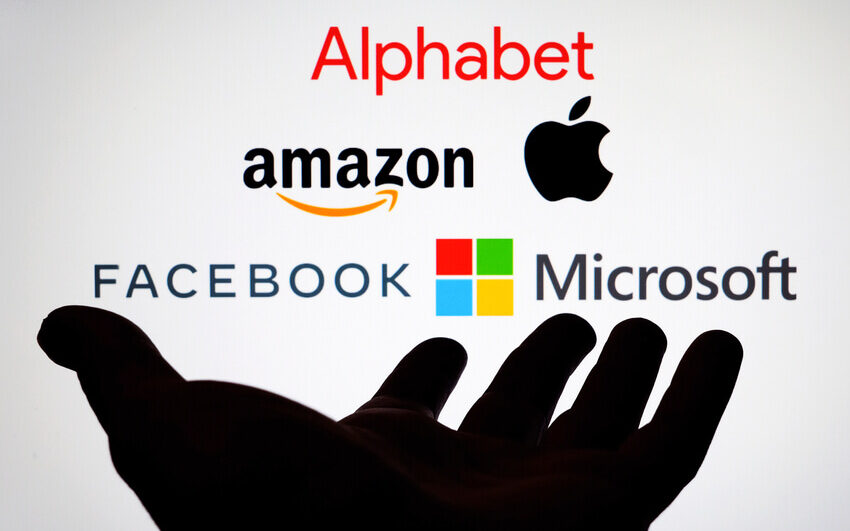Bespoke Investment Group noted earlier this week that the mega-cap tech stocks that have dominated this bull market are showing signs of weakness.
Apple Inc., Amazon.com Inc., Facebook Inc., Alphabet Inc. and Microsoft Corp. are all below their 52-week averages.
Electric vehicle and battery maker Tesla Inc. remains above its 50-day moving average, but most of the rest of Big Tech Nasdaq has distinctly lost its swagger.
Mega-cap Tech stocks remain below their 50-DMAs. Of the six shown below, only Tesla $TSLA is above… $AAPL $AMZN $FB $GOOG $MSFT https://t.co/H4p1RcpfIn pic.twitter.com/9KbWSTmslg
— Bespoke (@bespokeinvest) October 5, 2020
So, what’s the play here?
Is this a sign that the long-anticipated rotation out of growth and into value is underway? Or is Mr. Market simply taking a moment to digest the gains of the past six months?
To put it in perspective, let’s see where these tech names fall into our Green Zone Ratings scale. Chief Investment Strategist Adam O’Dell’s system evaluates stocks using a variety of fundamental and technical indicators. Historically stocks that rate highly outperform the S&P 500 by up to three times over 12 months.
We’ll start with Apple (Nasdaq: AAPL). Apple rates at 76 in our system, outranking all but 24% of all stocks in our universe. Apple scores well in Momentum (98), Quality (93), Growth (84) and Volatility (81).
Our rating system classifies Apple as “Bullish.” Stocks rated 61-80 have historically outperformed the S&P 500 by two times over the following 12 months.
Amazon.com’s (Nasdaq: AMZN) 84 rating earns it a “Strong Bullish” tag. Amazon rates highest in Growth (100), Momentum (99), Quality (92) and Volatility (91). “Strong Bullish” stocks with ratings 81-100 have historically outperformed the market by three times over the following 12 months.
Facebook (Nasdaq: FB) rates even higher than Amazon, coming in at 86. The social media giant rates highest in Quality (100), Growth (99), Momentum (99) and Volatility (78).
Alphabet (Nasdaq: GOOGL) is also “strong bullish” at 84. Alphabet rates highest in Quality (99), Growth (87), Momentum (87) and Volatility (84).
Microsoft (Nasdaq: MSFT) comes in a hair lower at 82 but is still capable of tripling the market overall. Like its two predecessors, Microsoft rates highest in Quality (97). It also touts great scores in Momentum (94), Volatility (93) and Growth (90).
It’s worth noting that while all of these stocks rate highly overall, all rank relatively low based on Value and extremely low based on Size. These are large, high-quality companies that investors are willing to pay top dollar to own.
Finally, we get to the one stock still above its 50-day moving average, Tesla (Nasdaq: TSLA). Unlike its big tech brethren, Tesla rates poorly in our model with a score of just 34. While Tesla rates well in Momentum (96) and Growth (81), it rates poorly in everything else, scoring a 3 on Value and a 0 on Size.
So, what conclusions can we reach here?
What to Do With Big Tech Stocks Now
 A high Green Zone Rating does not guarantee that a stock beats the market or that it posts positive returns. Nothing is guaranteed in this game.
A high Green Zone Rating does not guarantee that a stock beats the market or that it posts positive returns. Nothing is guaranteed in this game.
But it does suggest that if you are a long-term investor, you may not want to dump any of the big five. In fact, the recent weakness may be a buying opportunity.
Lower-quality names can outperform high-quality names for short stretches of time (or even long stretches of time). The market has a way of keeping us guessing; but if we’re playing the odds, it makes sense to stay the course with the highly-rated Big Tech giants.
This isn’t to say you should simply buy, hold and pray. If you have large gains already built in, it’s smart to rebalance and take some of your profits off the table. Putting too much of your portfolio into a single name is a mistake.
Ratings systems like ours look at past data. But something fundamentally new and unexpected may come down the pipe and make the historical data meaningless. You could have owned a portfolio of high-quality buggy whip manufacturers and still lost a fortune when the automobile made horse-and-buggies obsolete.
So, by all means, use this weakness as a buying opportunity. But keep your position sizes reasonable.
Money & Markets contributor Charles Sizemore specializes in income and retirement topics. Charles is a regular on The Bull & The Bear podcast. He is also a frequent guest on CNBC, Bloomberg and Fox Business.
Follow Charles on Twitter @CharlesSizemore





